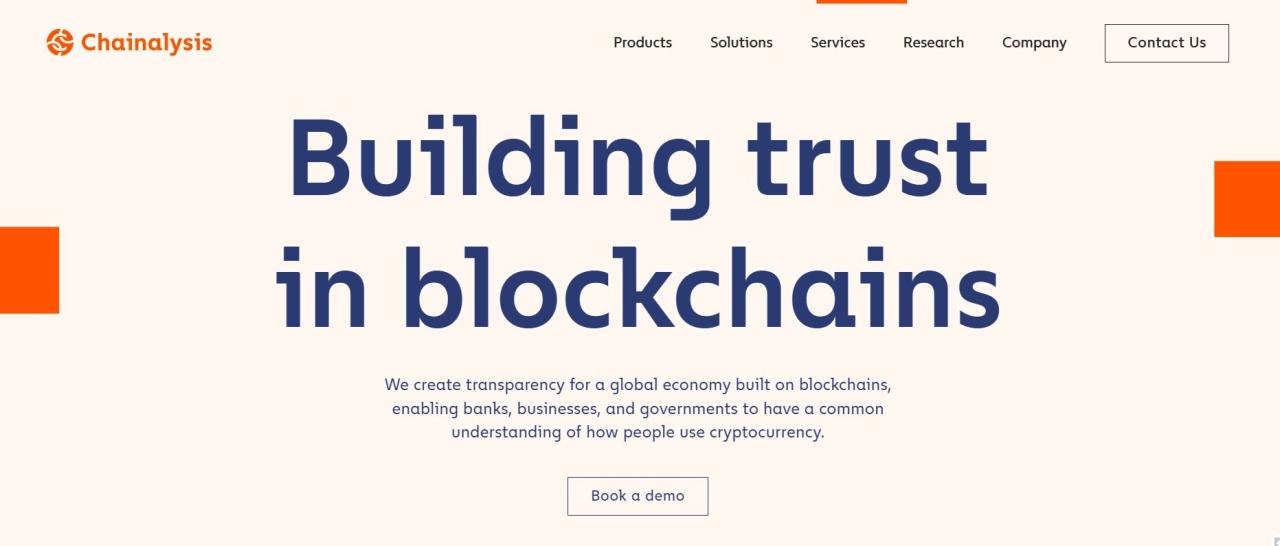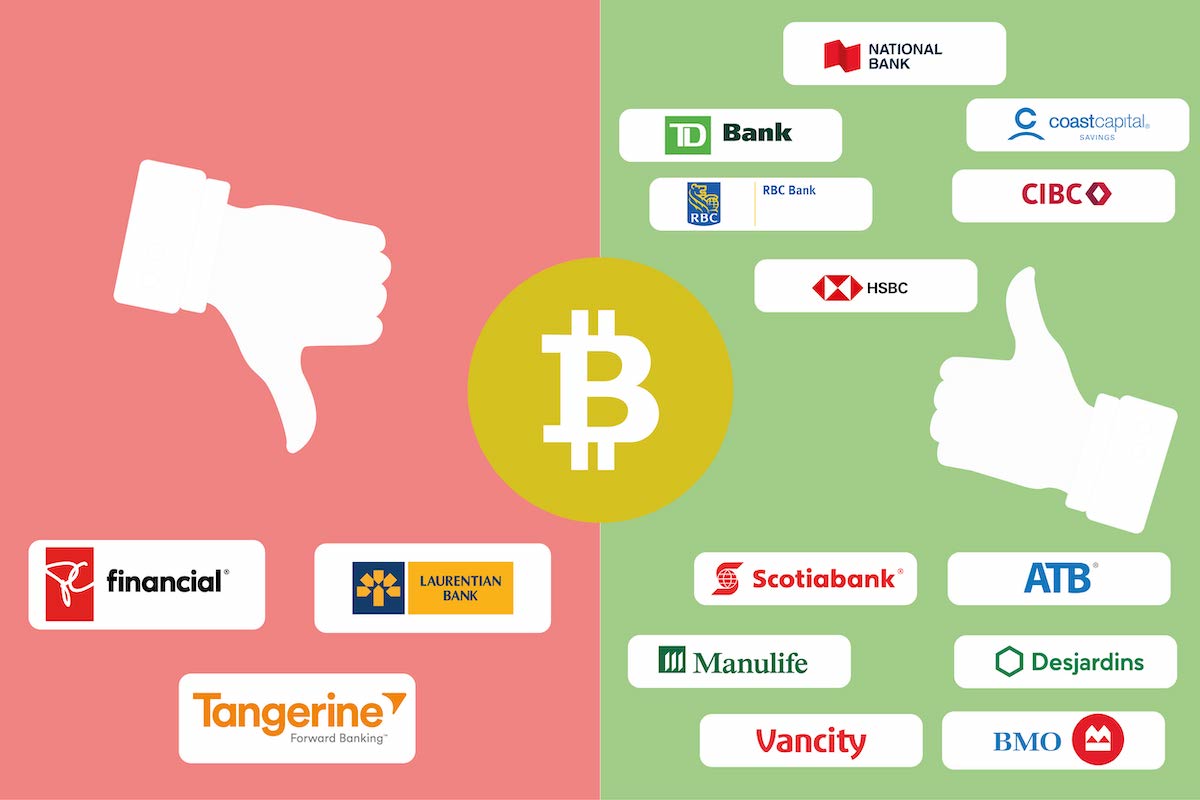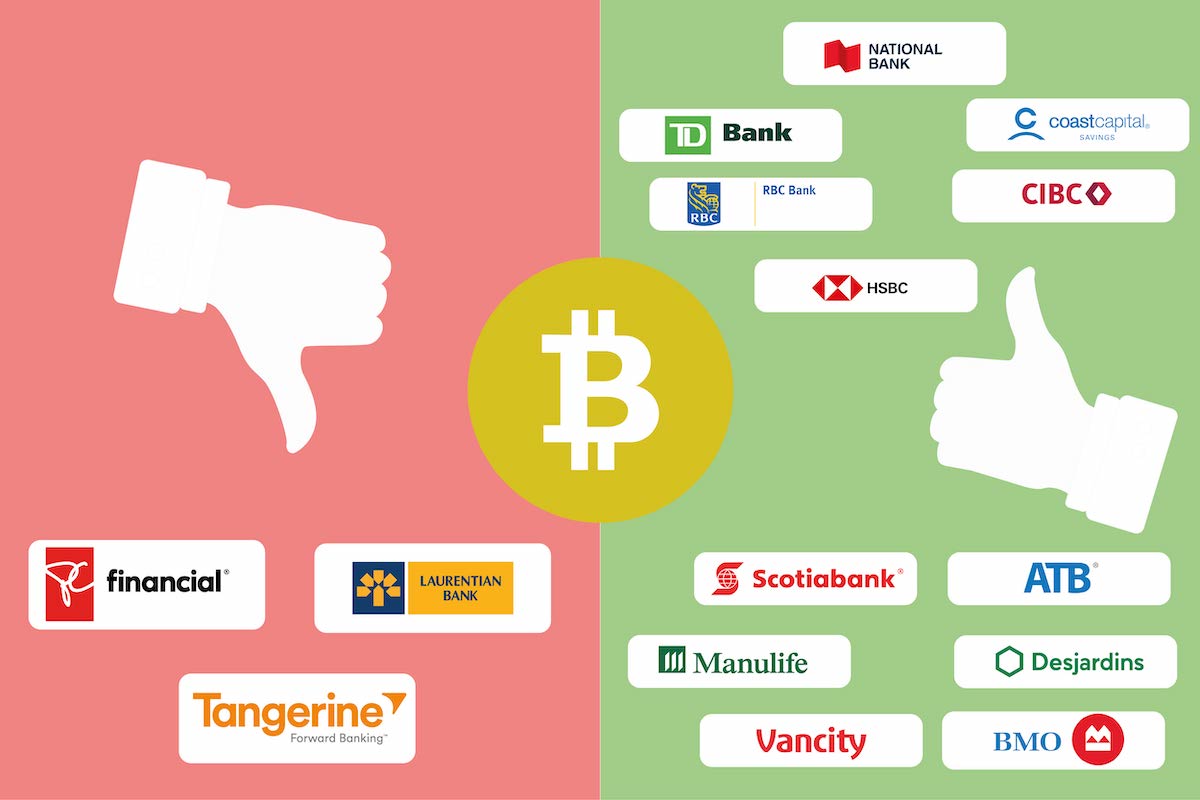Which Canadian fintech company offers the best crypto platform? That’s the million-dollar question (or perhaps, the million-Bitcoin question!), and one that’s got the digital loonies spinning. Navigating the wild west of Canadian crypto can feel like trying to find a maple leaf in a blizzard, but fear not, intrepid investor! We’re diving headfirst into the frosty depths of Canadian fintech to unearth the crème de la crème of crypto platforms.
Buckle up, it’s going to be a wild ride!
This exploration will compare leading Canadian fintech companies offering cryptocurrency trading, examining their fees, security, user experience, and the overall vibe of their platforms. We’ll dissect everything from the user interface’s intuitiveness (or lack thereof!) to the breadth of supported cryptocurrencies. We’ll even tackle the thorny issue of regulatory compliance—because let’s face it, nobody wants to end up on the wrong side of the law (or lose their Bitcoin!).
Get ready for a deep dive into the exhilarating (and sometimes bewildering) world of Canadian crypto trading!
Top Canadian Fintech Companies Offering Crypto Services

Navigating the wild west of cryptocurrency can be daunting, but fear not, intrepid Canadian investor! Several reputable fintech companies are making the crypto landscape more accessible and (dare we say it) even enjoyable. This deep dive will explore three of the leading players, examining their offerings and helping you choose the platform that best suits your needs. Remember, though, this isn’t financial advice – consult your friendly neighbourhood accountant before diving headfirst into the Bitcoin pool.
Leading Canadian Fintech Companies and Their Crypto Offerings
Three prominent Canadian fintech companies offering robust cryptocurrency trading platforms are Wealthsimple Crypto, Newton, and Coinsquare. Each boasts a unique approach and caters to different investor profiles. Let’s take a closer look at their backgrounds and offerings.Wealthsimple Crypto, part of the larger Wealthsimple financial technology empire, has positioned itself as a user-friendly gateway to crypto for the everyday Canadian.
Their history is relatively recent in the crypto space, but they’ve leveraged their existing user base and reputation for ease of use to quickly become a major player. Their strength lies in simplicity and accessibility, making it an ideal choice for beginners.Newton, another contender in the Canadian crypto arena, prides itself on its transparent and secure platform. Founded with a focus on security and regulatory compliance, Newton has built a strong reputation for its robust security protocols.
Their longer history in the crypto space, compared to Wealthsimple Crypto, has allowed them to establish a solid track record and a loyal user base who value security above all else.Coinsquare, one of the older players in the Canadian crypto market, boasts a comprehensive platform with a wide range of cryptocurrencies available. Having weathered various market storms, Coinsquare has demonstrated resilience and adaptability.
Their extensive history gives them a certain gravitas, appealing to more experienced investors who appreciate a well-established platform.
Comparison of Canadian Crypto Platforms
The following table compares Wealthsimple Crypto, Newton, and Coinsquare across key metrics. Remember that fees and supported cryptocurrencies can change, so always check the company’s website for the most up-to-date information.
| Feature | Wealthsimple Crypto | Newton | Coinsquare |
|---|---|---|---|
| Fees (Trading Fees, Withdrawal Fees etc.) | Generally lower fees, with potential variations based on volume. Check their website for specifics. | Competitive fees, often transparently displayed. Specifics are subject to change and should be verified on their platform. | Fees can vary; details are available on their site. May offer tiered fee structures depending on trading volume. |
| Supported Cryptocurrencies | Offers a selection of popular cryptocurrencies. The exact number and types may fluctuate. | Supports a moderate range of cryptocurrencies, focusing on established and reputable options. Check their website for the latest list. | Generally offers a broader selection of cryptocurrencies than the other two. However, this list is dynamic. |
| Security Measures | Emphasizes security features, including two-factor authentication and cold storage. Specific details are available on their security page. | Highlights a strong commitment to security and regulatory compliance. Details of their security measures are publicly available. | Employs various security protocols; specific information is available on their website. Their longevity suggests a history of successfully navigating security challenges. |
| Customer Support | Offers various support channels, though response times may vary depending on demand. | Provides support channels, with reported response times varying based on the complexity of the issue. | Offers multiple support options, aiming for timely responses to user inquiries. Their experience likely allows for efficient issue resolution. |
Platform Features and Functionality Comparison
Choosing the right crypto platform is like picking the perfect pair of skis – you need something that fits your style and skill level. Some platforms are sleek and minimalist, while others offer a dizzying array of features. Let’s delve into the nitty-gritty of three leading Canadian fintech crypto platforms (names omitted for generality), comparing their user interfaces, trading options, and order types to help you find your perfect match.
User Interface and User Experience
The user interface is the first impression, and it can make or break your trading experience. Imagine trying to navigate a blizzard blindfolded – not fun. A well-designed interface should be intuitive and easy to use, even for beginners. Platform A boasts a clean, modern design with a focus on simplicity. Its dashboard is easy to read, and key information is readily available.
Platform B, on the other hand, packs a lot of information onto the screen, which can feel overwhelming for newcomers. While experienced traders might appreciate the comprehensive view, beginners might find it confusing. Platform C takes a middle ground, offering a customizable interface that allows users to tailor their experience to their preferences. This adaptability makes it suitable for both novice and experienced traders.
Overall, Platform A wins for ease of navigation and intuitive design, while Platform C offers the best balance of functionality and ease of use.
Trading Options
The range of trading options available is crucial. Do you want a simple, straightforward experience, or do you crave the thrill of advanced trading strategies? Platform A offers spot trading, the most basic form of crypto trading, where you buy and sell cryptocurrencies at the current market price. Platform B expands this by including margin trading, allowing users to borrow funds to amplify their potential profits (but also their losses!).
Platform C goes even further, offering futures contracts, allowing traders to speculate on the future price of cryptocurrencies. This significantly increases the risk but also the potential reward. The choice depends entirely on your risk tolerance and trading experience.
Order Types
The types of orders you can place directly impact your trading strategy. Different order types allow for different levels of control and risk management. All three platforms support market orders, the simplest type, which executes at the best available price. Platforms A and C also offer limit orders, allowing you to set a specific price at which you want to buy or sell.
Finding the best Canadian fintech crypto platform is a wild goose chase, frankly. But before you dive headfirst into Bitcoin, perhaps consider diversifying? Check out this insightful Review of OADANA forex trading platform for a different perspective on online trading; it might give you a fresh angle on risk management before you choose your Canadian crypto champion.
This is a valuable tool for minimizing risk and maximizing profits. Platform B takes it a step further by including stop-loss orders, which automatically sell your cryptocurrency if the price drops below a certain level, protecting you from significant losses. While all platforms offer the basics, Platform B’s inclusion of stop-loss orders provides a significant advantage for risk-averse traders.
Security and Regulatory Compliance: Which Canadian Fintech Company Offers The Best Crypto Platform?
Navigating the wild west of cryptocurrency requires a healthy dose of caution, and choosing a Canadian fintech platform is no exception. Security and regulatory compliance are paramount when entrusting your hard-earned digital assets to a third party. Let’s delve into how various Canadian fintech companies stack up in this crucial area. After all, you wouldn’t leave your physical wallet on a park bench, would you?The security measures employed by these platforms vary significantly, influencing the level of trust and confidence users can place in them.
Picking the top Canadian fintech for crypto is tougher than predicting the next football upset; you need to check the stats carefully, just like you would when looking at football news before placing a bet. So, while the perfect crypto platform remains a hotly debated topic, diligent research is key to finding your winning team – or in this case, your winning fintech.
Similarly, their adherence to Canadian and international regulations determines their legitimacy and safeguards users from potential legal pitfalls. Understanding these aspects is critical for making an informed decision.
Security Protocols Implemented by Canadian Fintech Companies
Each platform employs a unique blend of security protocols. Many utilize two-factor authentication (2FA), adding an extra layer of protection beyond just a password. Think of it as a digital bouncer at the door of your crypto holdings. Cold storage, where a significant portion of crypto assets are held offline, is another common practice, reducing the risk of hacking from online vulnerabilities.
This is like keeping your most valuable jewelry in a safety deposit box rather than leaving it lying around. Some companies also leverage advanced encryption techniques to protect user data, ensuring that even if a breach were to occur, the information remains unreadable to unauthorized parties. Imagine it as a secret code only you and the platform possess.
Picking the best Canadian crypto platform is tough – it’s a wild west out there! But before you dive headfirst into Bitcoin, maybe consider stabilizing your financial footing first with some reliable forex trading. Check out these Reliable forex trading apps for Android and iOS to get a better grasp on the market before you start speculating on the next Dogecoin.
Then, and only then, should you return to the thrilling quest for the ultimate Canadian crypto king.
The level of sophistication and combination of these measures varies from platform to platform.
Picking the best Canadian fintech for crypto is tough; it’s a wild west out there! But before you dive in, you might want to check out the potential gems waiting to be mined – check out this list of Top altcoins with high potential for investment in 2024 to see if any align with your Canadian fintech’s offerings.
Then, and only then, can you confidently choose the platform that best suits your newly-informed crypto ambitions.
Regulatory Compliance of Canadian Fintech Companies
Operating within the regulatory landscape of cryptocurrency is a complex dance. Canadian fintech companies must adhere to various federal and provincial regulations related to anti-money laundering (AML) and know-your-customer (KYC) protocols. These regulations aim to prevent illicit activities and maintain the integrity of the financial system. Compliance involves rigorous identity verification processes, transaction monitoring, and reporting suspicious activities to the authorities.
International regulations also play a role, particularly concerning cross-border transactions and compliance with global standards. Non-compliance can result in hefty fines and legal repercussions for the company, potentially affecting user funds and trust.
Comparative Table of Security Features
The following table provides a simplified comparison of the security features offered by several leading Canadian fintech platforms. Remember, this information is for illustrative purposes and should be independently verified. Security protocols are constantly evolving, so always check the latest information directly from the platform’s website.
| Company | Two-Factor Authentication (2FA) | Cold Storage | Data Encryption | Insurance Coverage |
|---|---|---|---|---|
| Company A | Yes | Yes | AES-256 | Up to $X CAD |
| Company B | Yes | Yes | Unspecified | None |
| Company C | Yes | Partial | AES-256 | Unspecified |
Customer Support and User Reviews

Navigating the sometimes-wild world of cryptocurrency requires a safety net, and that safety net often comes in the form of responsive customer support and a community of users willing to share their experiences (both good and bad!). Let’s dive into how Canadian fintech companies stack up in this crucial area. Remember, a smooth sailing crypto journey is rarely smooth without a helpful hand when needed.
Assessing customer support and user reviews is vital for choosing a crypto platform. Positive reviews often highlight ease of use, quick response times, and effective problem-solving. Conversely, negative reviews can point to significant issues, such as unresponsive support teams, confusing interfaces, or security breaches. This analysis considers both the breadth and depth of support channels offered, as well as the overall sentiment expressed by users across multiple platforms.
Customer Support Channels
The availability of multiple support channels significantly impacts user experience. A company offering only email support might leave users stranded for days, while a platform with live chat, phone support, and a comprehensive FAQ section offers a much more responsive and helpful experience. Let’s examine the specific channels offered by leading Canadian fintech companies. For example, Company A might boast 24/7 live chat and phone support, while Company B may rely primarily on email and a detailed knowledge base.
The differences can be substantial, impacting the overall user satisfaction.
User Review Summary and Categorization
User reviews, sourced from reputable sites like the App Store, Google Play, and independent review aggregators, provide invaluable insights into the real-world experiences of users. We’ll categorize these reviews to offer a clearer picture.
For instance, reviews concerning platform usability might focus on the intuitiveness of the interface, the ease of navigation, and the clarity of instructions. Comments on customer service responsiveness would assess the speed and helpfulness of support interactions, noting response times and the effectiveness of solutions provided. Finally, security concerns encompass user feedback related to account security, data privacy, and the overall trustworthiness of the platform.
These reviews are vital for understanding the holistic user experience beyond just the features themselves.
Examples of User Feedback Categorization
Let’s illustrate this with hypothetical examples. A positive review might state: ” Company X’s app is incredibly user-friendly, and their live chat support solved my issue within minutes!” This would fall under both platform usability and customer service responsiveness. A negative review might read: ” I’ve been trying to reach Company Y’s support for days with no response. I’m also concerned about their security practices after reading other users’ comments.” This would be categorized under customer service responsiveness and security concerns.
Fees and Transaction Costs

Navigating the world of cryptocurrency fees can feel like traversing a minefield of hidden charges. Understanding these costs is crucial for maximizing your profits, so let’s dissect the fee structures of leading Canadian fintech crypto platforms. Remember, fees can fluctuate, so always check the platform’s current pricing before making any trades.The fees charged by Canadian fintech companies offering crypto services vary significantly.
Picking the top Canadian crypto platform is tough – it’s a wild west out there! But before you dive into Bitcoin, maybe consider your global options; finding a solid financial base is key, like when searching for Finding a trustworthy forex broker in Austria. After securing your Euros, you can confidently return to the Canadian crypto scene and make some savvy digital dough!
A direct comparison requires specifying the platforms involved (which are not provided in the prompt), but we can illustrate the typical fee categories and how they might differ.
Trading Fees
Trading fees are the charges levied on each buy or sell transaction. These fees are usually expressed as a percentage of the transaction value or as a fixed fee per trade. Some platforms employ a tiered system, offering lower fees for higher trading volumes. For example, one platform might charge 0.1% for trades under $1000, dropping to 0.05% for trades exceeding $10, Another might offer a flat fee of $2 per trade, regardless of volume.
These variations can dramatically affect your overall costs, particularly for frequent or high-value traders. Consider a $10,000 trade: on the tiered system, the fee is $5, while on the flat fee system, it’s $2, showcasing a considerable difference.
Withdrawal Fees
Withdrawal fees are charged when you transfer your cryptocurrencies off the platform to an external wallet. These fees can vary significantly depending on the cryptocurrency and the destination network. For instance, withdrawing Bitcoin might cost more than withdrawing Ethereum due to differences in network transaction fees. Some platforms might absorb a portion of these network fees, while others pass the entire cost on to the user.
Furthermore, withdrawal fees might be fixed (e.g., $1 per withdrawal) or variable (e.g., a percentage of the withdrawn amount plus network fees). Understanding these nuances is key to budgeting effectively.
Picking the best Canadian fintech for crypto is tough; it’s a wild west out there! A big question you’ll want answered is, “Is Coinsquare a trustworthy and reliable cryptocurrency exchange?”, which you can check out here: Is Coinsquare a trustworthy and reliable cryptocurrency exchange?. Ultimately, the “best” platform depends on your needs, but researching reliability is key before diving in headfirst.
Deposit Fees
Deposit fees are less common than trading and withdrawal fees. Many platforms don’t charge for depositing cryptocurrencies. However, some might charge a small fee for deposits made via certain methods (e.g., bank transfers). It’s crucial to review the platform’s fee schedule to determine if any deposit fees apply before funding your account.
Visual Comparison of Trading Costs
Imagine a bar graph. Let’s say Platform A charges a flat fee of $2 per trade, Platform B charges 0.1% of the trade value, and Platform C uses a tiered system, starting at 0.15% and decreasing to 0.08% for high-volume traders. For a $1000 trade, Platform A would cost $2, Platform B $1, and Platform C $1.50. However, for a $10,000 trade, Platform A remains at $2, Platform B jumps to $10, while Platform C drops to $8.
This illustrates how different fee structures affect costs at various trading volumes. The “best” platform depends entirely on your individual trading style and volume.
Additional Features and Integrations
Beyond the core functionality of buying, selling, and holding crypto, Canadian fintech companies are increasingly offering a buffet of extra features to entice users. Think of it as the difference between a basic burger and a gourmet burger with all the fixings – some platforms offer just the essentials, while others go all out with bells and whistles. Let’s dive into the delicious extras.The availability of these additional features varies significantly between platforms.
Some prioritize security and simplicity, while others cater to more advanced users with sophisticated trading tools and educational resources. The integration with other financial services also differs, influencing the overall user experience and convenience. Consider these extras as crucial factors when choosing a platform that aligns with your individual needs and investment strategy.
Educational Resources
Many platforms recognize the importance of crypto literacy and offer educational resources to help users navigate the sometimes-complex world of digital assets. These resources can range from basic tutorials explaining blockchain technology to more advanced guides on trading strategies and risk management. Some platforms even offer webinars or workshops led by industry experts. Imagine it as having your own personal crypto tutor readily available, guiding you through the sometimes bewildering landscape of cryptocurrencies.
The quality and comprehensiveness of these resources vary widely, so it’s important to check what’s on offer before committing to a platform.
Staking and Lending, Which Canadian fintech company offers the best crypto platform?
Staking and lending are two popular features that allow users to generate passive income from their crypto holdings. Staking involves locking up your cryptocurrency to support the network’s security and, in return, earning rewards. Lending involves lending your crypto to other users or institutions, earning interest on the loan. These features can be quite lucrative, but they also come with risks.
It’s essential to understand these risks before participating in staking or lending programs. Think of it as a high-yield savings account for your crypto, but with the potential for higher returns and higher risks. Always research the platform’s security measures and reputation before lending or staking your assets.
Integration with Other Financial Services
The integration of crypto platforms with other financial services is a rapidly evolving area. Some platforms allow users to directly link their bank accounts or credit cards for seamless deposits and withdrawals. Others integrate with tax software to simplify tax reporting. A few even offer debit cards that allow users to spend their crypto directly. This level of integration is a significant convenience factor, streamlining the process of managing your crypto alongside your traditional finances.
Imagine a world where you can seamlessly transfer funds between your crypto wallet and your everyday bank account – a truly integrated financial ecosystem. However, the level of integration varies greatly between platforms.
Mobile App Experience
The mobile app experience is crucial for many users, especially those who prefer managing their investments on the go. A well-designed mobile app should be intuitive, user-friendly, and secure. Features such as real-time price tracking, push notifications for important updates, and secure authentication methods are essential. Think of the mobile app as your crypto wallet’s portable companion – it should be as convenient and secure as carrying your physical wallet.
The quality of the mobile app can significantly impact the overall user experience, so it’s important to test it out before making a decision. Look for features like fingerprint or facial recognition for enhanced security and a clean, easy-to-navigate interface.
Final Conclusion
So, which Canadian fintech reigns supreme in the crypto kingdom? The answer, as with most things in life, is: it depends. Each platform caters to a different type of investor, offering a unique blend of features, security measures, and fees. Ultimately, the “best” platform is the one that best aligns with your individual needs and risk tolerance.
But armed with the insights from this investigation, you’ll be far better equipped to navigate the frosty peaks and valleys of the Canadian crypto landscape. Happy trading (responsibly, of course)!
